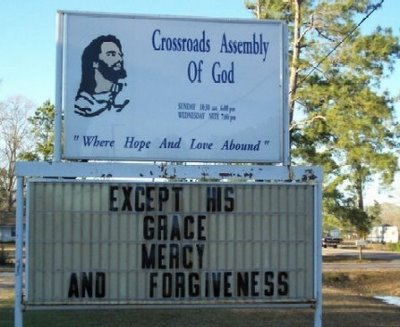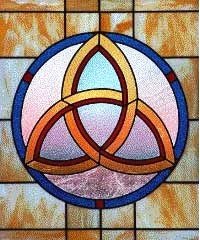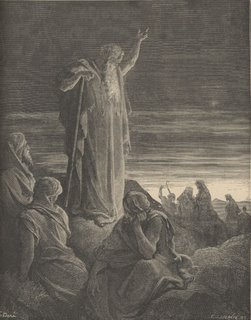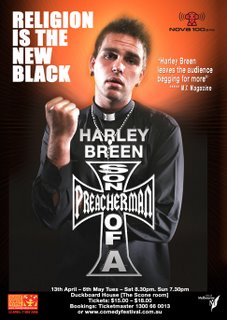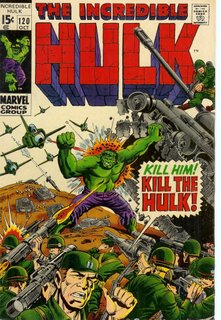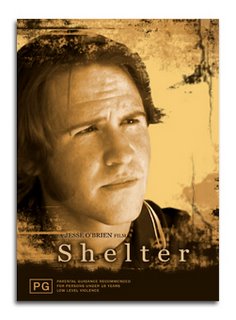 There is a big difference between “He is not here,” and “He is risen!” Mary, and Peter, and John, along with the other disciples moved in this direction in their experience that first Sunday morning (John 20:1-18). The body of the Lord was gone and it took a while for the realisation to dawn that he was in fact alive from the dead and not just a stolen corpse. They moved from a startled confusion to a settled conclusion. The moved from the real absence of Christ to the real presence of Christ.
There is a big difference between “He is not here,” and “He is risen!” Mary, and Peter, and John, along with the other disciples moved in this direction in their experience that first Sunday morning (John 20:1-18). The body of the Lord was gone and it took a while for the realisation to dawn that he was in fact alive from the dead and not just a stolen corpse. They moved from a startled confusion to a settled conclusion. The moved from the real absence of Christ to the real presence of Christ.
When my daughter Sophie arrived in church on Good Friday morning she gave me a big hug, and said, “Dad, I had a dream that you had died, but you didn’t.” I’m sure we’ve all had that experience, when we woke from a bad dream and felt a surging wave of relief that the horrors we had experienced were in fact an illusion and all was well again. The disciples must have had an experience somewhat like that. When Mary saw Jesus standing in the garden alive and well - more alive and well than ever - all that had happened over the last few terrible days must have seemed an illusion - a bad dream. Now all was well again.
But they did not get to this realisation as quickly as we do. It is impossible for us to work our way back into the experience of these early disciples, because we know the end of the story. It’s like watching a grand final match on video; it’s nowhere near as exciting as watching the game in the first place because we know the outcome of the match. We try to enter into the experience of the disciples when we dramatise Easter throughout Holy Week, with our Maundy Thursday and Good Friday and Holy Saturday vigil, during which we try not to make mention of the resurrection. But as much as we try we can’t really do it, because the fact remains - we know the end of the story. They didn’t, but we do.
Hubert Beck reminds us:
Easter means nothing if we do not recognize, as did those around Jesus, that death is death in all its horrible reality. Our celebration of Easter is too often framed by an idea that the resurrection is a “springtime,” the season when it is celebrated in the northern hemisphere. Perhaps those in the southern hemisphere have some advantage..for there Easter must be observed in the fall of the year when all is moving toward winter and the browning of the earth. In [the northern hemisphere] it is all too easy to point to the return of the leaves, the blossoming of the flowers, the greening of the earth as though they were "pictures” of Christ’s resurrection. All of that is fine and dandy, except for one simple fact: The greening of the earth is not a resurrection from any death; it is, rather, a re-emergence of life in dormant plants. They enliven again, bloom for a period of time, wither and return to sleep for another winter after which they will again begin the round of lively existence and dormant waiting. Dead plants do not return to life in the spring. If they were dead in the fall, they will not live in the spring; and if they die during the winter there will be no spring for them. Dormant things are only “life-hiding,” not dead! Dead things are dead, and that is that. They will not return to life. One can only weep over them, for their laughter is gone. (Hubert Beck, “Sermon on John 20:1-18,”)
When you a buy a garden bulb it’s just a dirty looking round thing with a few scraggly roots hanging off the end of it. It already looks half dead. But that doesn’t bother you because you know that when its time comes that bulb is going to blossom into a magnificent flower. But look into the coffin and see a dead parent, a dead child, a dead wife, husband, or friend, and you know they are not coming back. They’re dead and you are never going to see them alive again. You will never talk with them again, never hear their voice again, never know their touch again. They are dead. Dead as a doornail. Dead is dead and that's all there is to it. The only spring time they’re going to know is the springtime over their graves. (The image is drawn from the sermon, “The Unnatural Truth,“ by Barbara Brown Taylor in Christian Century, 20 March 1996.)
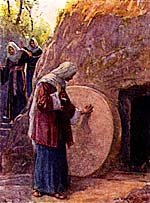 Why am I saying all of this on such a bright and happy day as Easter? Why am I painting such a bleak picture in such dark tones? Because we have to overcome somehow this idea that the resurrection is just a symbolic representation of a natural process. It is not that. It is wholly unnatural. It is supernatural. It runs so opposite to the direction of nature that it overturns nature and institutes a new creation. Yes, this is a day of rejoicing, but not because there is a silver lining on every cloud, not because there are no valleys without corresponding hills, not because tadpoles turn into tree frogs or grubs into butterflies, but because Jesus Christ is risen from the dead!
Why am I saying all of this on such a bright and happy day as Easter? Why am I painting such a bleak picture in such dark tones? Because we have to overcome somehow this idea that the resurrection is just a symbolic representation of a natural process. It is not that. It is wholly unnatural. It is supernatural. It runs so opposite to the direction of nature that it overturns nature and institutes a new creation. Yes, this is a day of rejoicing, but not because there is a silver lining on every cloud, not because there are no valleys without corresponding hills, not because tadpoles turn into tree frogs or grubs into butterflies, but because Jesus Christ is risen from the dead!
In the fourth century John Chrysostom wrote a sermon which became one of his more famous ones and perhaps the most famous Easter sermons ever written. In it he asks:
Are there any who are devout lovers of God?
Let them enjoy this beautiful bright festival!
Are there any who are grateful servants?
Let them rejoice and enter into the joy of their Lord!
Are there any weary with fasting?
Let them now receive their wages!
If any have toiled from the first hour,
let them receive their due reward;
If any have come after the third hour,
let him with gratitude join in the Feast!
And he that arrived after the sixth hour,
let him not doubt; for he too shall sustain no loss.
And if any delayed until the ninth hour,
let him not hesitate; but let him come too.
And he who arrived only at the eleventh hour,
let him not be afraid by reason of his delay.
For the Lord is gracious and receives the last even as the first.
He gives rest to him that comes at the eleventh hour,
as well as to him that toiled from the first.
To this one He gives, and upon another He bestows.
He accepts the works as He greets the endeavour.
The deed He honours and the intention He commends.
Let us all enter into the joy of the Lord!
First and last alike receive your reward;
rich and poor, rejoice together!
Sober and slothful, celebrate the day!
You that have kept the fast, and you that have not,
rejoice today for the Table is richly laden!
Feast royally on it, the calf is a fatted one.
Let no one go away hungry. Partake, all, of the cup of faith.
Enjoy all the riches of His goodness!
Let no one grieve at his poverty,
for the universal kingdom has been revealed.
Let no one mourn that he has fallen again and again;
for forgiveness has risen from the grave.
Let no one fear death, for the Death of our Saviour has set us free.
He has destroyed it by enduring it.
He destroyed Hell when He descended into it.
He put it into an uproar even as it tasted of His flesh.
Isaiah foretold this when he said,
"You, O Hell, have been troubled by encountering Him below."
Hell was in an uproar because it was done away with.
It was in an uproar because it is mocked.
It was in an uproar, for it is destroyed.
It is in an uproar, for it is annihilated.
It is in an uproar, for it is now made captive.
Hell took a body, and discovered God.
It took earth, and encountered Heaven.
It took what it saw, and was overcome by what it did not see.
O death, where is thy sting?
O Hell, where is thy victory?
Christ is Risen, and you, o death, are annihilated!
Christ is Risen, and the evil ones are cast down!
Christ is Risen, and the angels rejoice!
Christ is Risen, and life is liberated!
Christ is Risen, and the tomb is emptied of its dead;
for Christ having risen from the dead,
is become the first-fruits of those who have fallen asleep.
To Him be Glory and Power forever and ever. Amen!
What an incredible thought - “Hell took a body and discovered God! It took earth, and encountered Heaven. It took what it saw, and was overcome by what it did not see.”
The sceptic H. G. Wells once wrote: “When I think of the Resurrection, I am always reminded of happy endings that editors and actor-managers are accustomed to impose on essentially tragic plays and novels.” I think Wells was wrong. I think he was wrong because I believe in happy endings, and Easter is the happiest ending of them all. Next week on ANZAC Day we will remember our fallen dead. “Lest we forget,” is our national motto at that time. But Robert Runcie, the former Archbishop of Canterbury, reminds us, “the New Testament never simply says, ‘Remember Jesus Christ.’ That is a half-finished sentence. It says ‘Remember Jesus Christ is risen from the dead.’”
I don’t like half finished sentences and I don’t like half finished stories. Every story has a denouement. The so-called "Lowery Loop" describes an identifiable shape to most narratives. We start with a setting, something occurs and there is a crisis, the crisis then deepens, then comes a realisation of how the situation is going to be restored, then comes the actual reversal in the situation. Finally there is the "denouement" - what happens after everything has settled. This pattern can be characterised by the words Oops, Ugh, Ah Ha, Yippee, and Aaaah. This cycle is certainly identifiable in the Easter story. "Oops," Jesus has been arrested and crucified. “Ugh,” he has died and been buried in a rock sealed tomb. “Ah Ha,” the tomb is empty, perhaps his words have been fulfilled and he really has risen. “Yippee,” he’s alive again! But where is the “Aaaah…!”? Where is the denouement? Where is the part of the story that happens after everything has settled? Sisters and brothers,
you are the denouement! The denouement is in our Acts reading today (Acts 10:34-43). “They killed [Jesus] by hanging him on a tree, but God raised him from the dead on the third day [and now we are here to announce that] everyone who believes in him receives forgiveness of sins through his name.” This our Easter proclamation today: “Forgiveness has risen from the grave.”
There is the denouement of the story. The New Testament itself and the believing community are the ongoing outcome of these tremendous events. The message of Easter is not only that Jesus has risen but that those who believe in him are also risen with him and constitute a new type of community - the community of the resurrection. Paul told the Ephesians that they were raised up with Christ and seated in heavenly places (Ephesians 2:6). He told the Colossians “When you are buried with him in baptism, you were also raised with him through faith in the power of God, who raised him from the dead.” (Col. 2:12). Paul wrote in the epistle for this week, “This is what we preach, and this is what you believed.” (1 Corinthians 15:11). What the apostles saw, they preached, and what they preached you and I believed, so you and I are the denouement of the story.
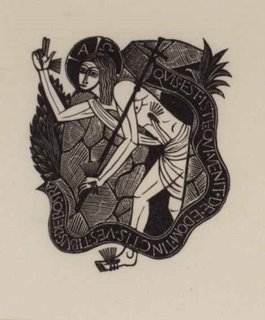
Consider for a moment the impact of the resurrection. The religious authorities were greatly disturbed, violence erupted in city streets, persecution that lasted three centuries ensued. Steven was stoned to death. The believers in Jerusalem were scattered. King Herod arrested Christians, executed James and imprisoned Peter. In Iconium, the people of the city were divided at the message of the resurrection. In Lystra, Paul was stoned and left for dead. In Philippi, he was imprisoned for “throwing the city into an uproar.” Riots broke out in Thessalonica and people complained that the disciples had “caused trouble all over the world.” The people of Athens sneered at Paul’s preaching of the resurrection. Rioters opposed Paul and his colleagues in Ephesus and there arose a great disturbance about the Way.” In Jerusalem Paul had to appeal to his Roman citizenship to prevent his being mobbed to death , but he was arrested there, and just like his Master, from that point on his fate was sealed. Festus, Roman governor of Judea under Nero was totally at a loss to know what to do with his prisoner. “They did not charge him with any of the crimes I had expected. Instead, they had some points of dispute with him about their own religion and about a dead man named Jesus who Paul claimed was alive.” The next day when Paul gave his defence Festus interrupted and said, “You are out of your mind, Paul! Your great learning is driving you mad.” So when H. G. Wells and other famous sceptics scoffed at the resurrection, as people still do today, it really wasn’t anything new.
Can we move today from “He is not here” to “He is Risen”? Can we move from startled confusion to settled conclusion? Can we move from the real absence to the real presence of Christ? Can we move from the fear of hell to seeing hell in an uproar because it has been overthrown? Hell took a body but discovered God! It took earth, and encountered Heaven! It took what it saw, and was overcome by what it did not see! Christ is risen! He is risen indeed!
Spring Street Wesleyan Methodist Church
Easter Sunday 2006
The final image on this blog entry is by Welsh artist David Jones "The Resurrection of Christ (from the Book of Jonah)" wood engraving 1926 8 x 7.5cm www.artwales.com
 Hands down the best thing on television at the moment is The Daily Show. Jon Stewart is a comic genius who is also an intellectual and let me tell you those two things are not often found in the same person. Time magazine recently voted him one of the 100 most influential people of 2005. If you don't have cable and don't get to see it most nights on 9.30 on the Comedy Channel, never fear, The Daily Show with John Stewart: Global Edition is back on SBS Thursdays at 10pm. There is an interesting review of the show by Kenneth Nguyen in today's Age. The caption in the photo on the online version is all wrong though because, as the article itself makes clear, Stewart is anything but postmodern. Rather he is more often than not pointing out how the postmodern emperor has no clothes. The Fox Network prides itself on informing the public with unbiased reporting ("no spin zone" - what a joke!). But one commentator says we should watch the Daily Show becuase "it's even better than being informed"! Stewart is "the most trusted name in fake news." So until the ABC resurrects Shaun Micalleff from the dead make mine Jon Stewart!
Hands down the best thing on television at the moment is The Daily Show. Jon Stewart is a comic genius who is also an intellectual and let me tell you those two things are not often found in the same person. Time magazine recently voted him one of the 100 most influential people of 2005. If you don't have cable and don't get to see it most nights on 9.30 on the Comedy Channel, never fear, The Daily Show with John Stewart: Global Edition is back on SBS Thursdays at 10pm. There is an interesting review of the show by Kenneth Nguyen in today's Age. The caption in the photo on the online version is all wrong though because, as the article itself makes clear, Stewart is anything but postmodern. Rather he is more often than not pointing out how the postmodern emperor has no clothes. The Fox Network prides itself on informing the public with unbiased reporting ("no spin zone" - what a joke!). But one commentator says we should watch the Daily Show becuase "it's even better than being informed"! Stewart is "the most trusted name in fake news." So until the ABC resurrects Shaun Micalleff from the dead make mine Jon Stewart!